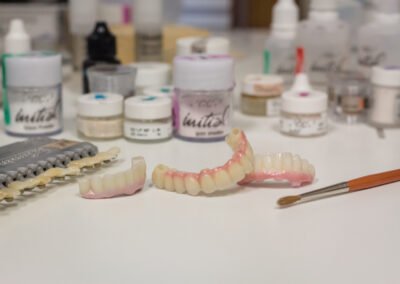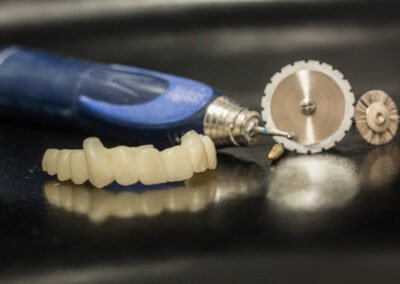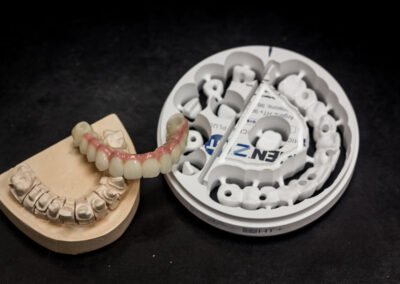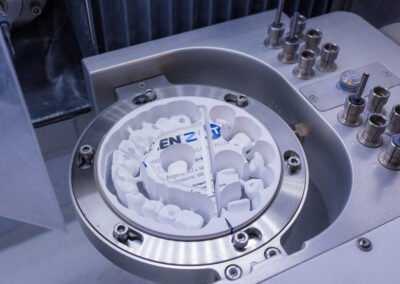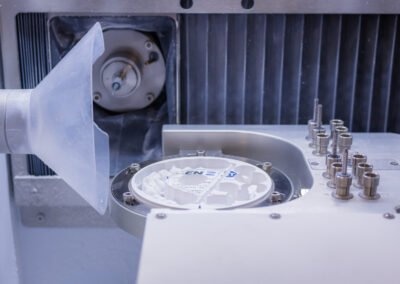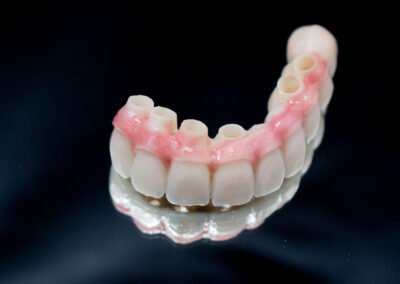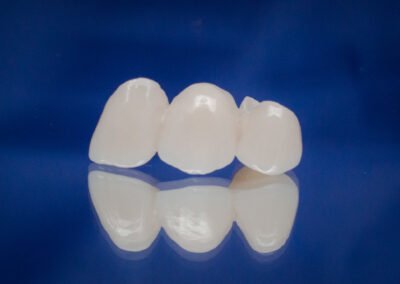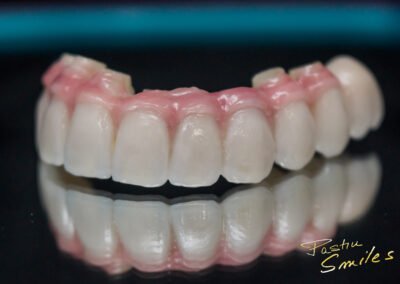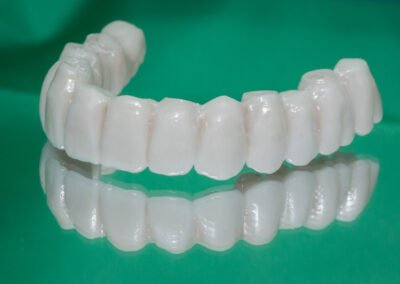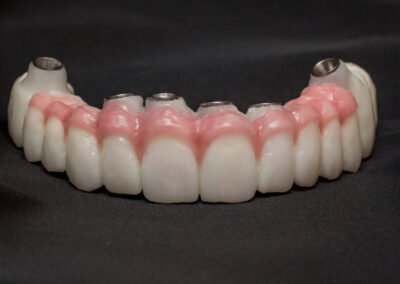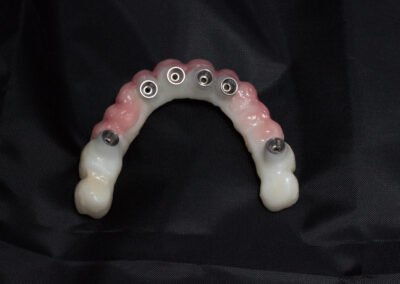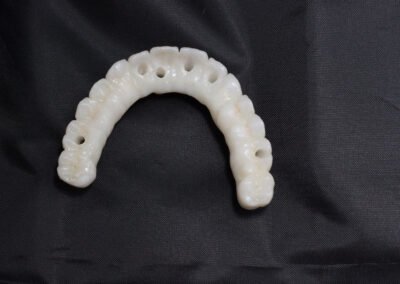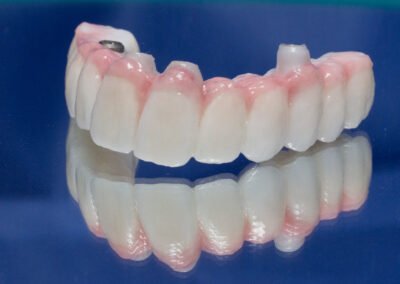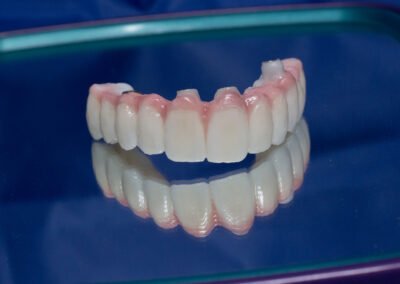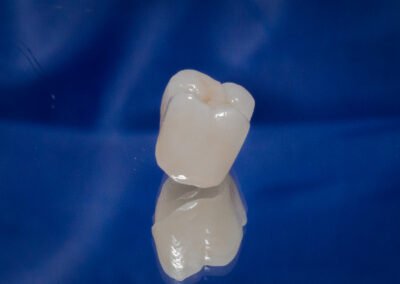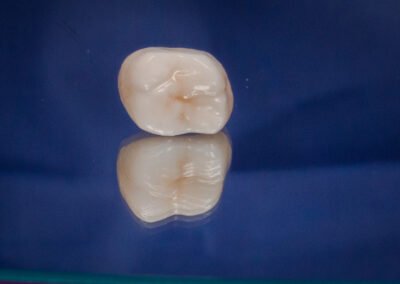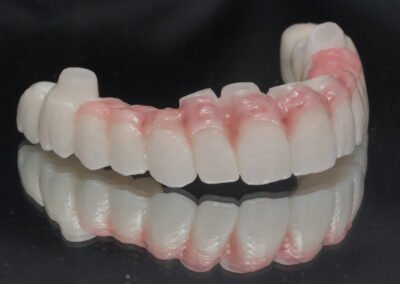Dental Lab Services
We collaborate with other dental professionals to provide custom crafted dental implants for patients seeking restorative procedures.
Our in-house lab allows for rapid turn around and ensures that perfect patient smile.
In Many Dental Practices, the Implant Procedure Entails
Case selection by a General Practitioner or Prosthodontist.
Referral to Oral Surgeon or Periodontist for surgical procedure.
Patient is referred back to General Practitioner for restoration.
Why Details Matter in Your Smile Journey
One
Familiarity with Implant Systems: Most General Practitioners of Dentistry are not familiar with the implant systems Oral Surgeons or Periodontists utilize. The General Practitioner contacts the implant representative for the recommended implant system. Sometimes the representatives are new and from a non-dental background. This places the General Practitioner and the patient in an unfamiliar situation.
Two
Familiarity with Restorative Procedures: The Oral Surgeon is not always familiar with the restorative aspect of the procedure, and many times, the implants are placed in a less-than-ideal position. The General Practitioner is then limited to these constraints when trying to achieve a positive outcome for the patient.
Three
Implant Restorations: Many dental practices depend on outside dental labs to fabricate new teeth for an implant restorative procedure. Few labs have the skill or experience needed for something as complex as a full-arch restoration. This lack of cohesion between processes leads to confusion between the dental professional and the lab about materials, parts, and techniques to the detriment of the patient.
Four
Unforeseen Issues: In the event something fails with the implant, there is little solution-oriented support from the implant companies. The implant manufacturer may suggest alternatives, but they do not have hands on activity with the patient. It’s left to the General Practitioner to improvise a correction which may have an impact on the perceived benefit by the patient.
Making The Teeth
Hours
Mon | 8AM – 2PM
Tues | 8AM – 3:30PM
Weds | 8AM – 3:30PM
Thurs | 8AM – 3:30PM
Fri | 8AM – 2PM
Sat | Closed
Sun | Closed
Contact
Sewell Dental Arts
400 Ganttown Road,
Sewell New Jersey, 08080
Phone: (856) 582-2220
Email: info@sewelldentalarts.com


